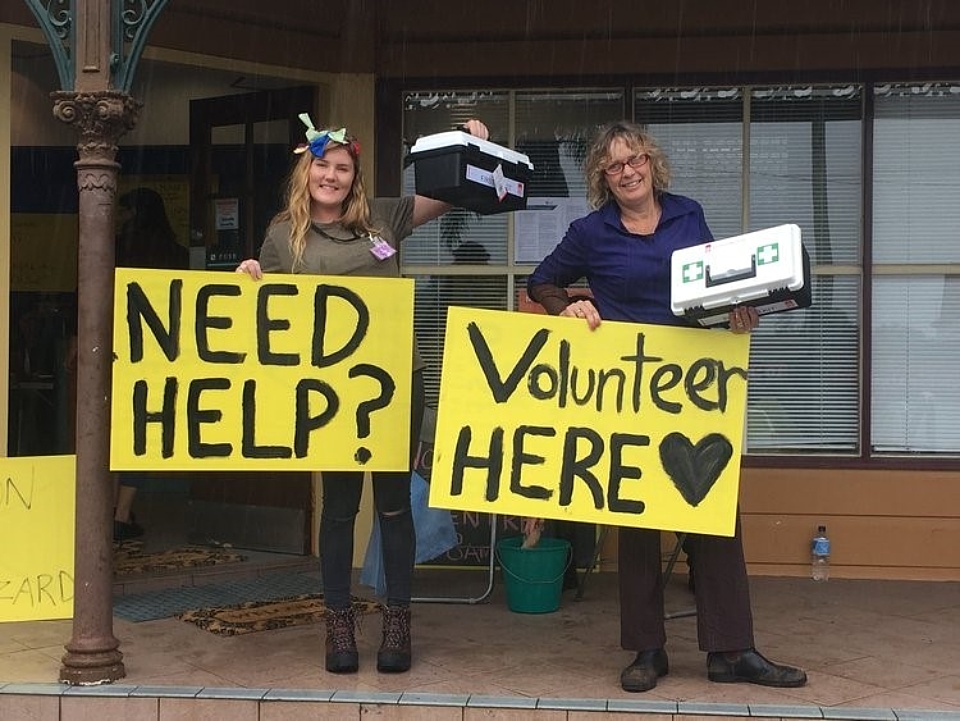
Truth in political advertising laws only the first step to eliminating the spread of misinformation
Posted on 14 May 2024
It’s time science and facts replaced profits and power if we are to truly tackle pressing issues…
Posted on 29 Aug 2023
By David Crosbie

Urgently needed reforms to government contracting have been buried in the too hard basket for too long. The time to act is now writes David Crosbie.
Over a decade ago the Productivity Commission called for major reform of government contracting.
Even before the Productivity Commission report, the Community Council for Australia (CCA) and many others had constantly called for reform in the way government departments manage their relationships with the charities and not-for-profit sector.
We are still waiting for real change.
When I think about the kinds of changes we need, I am reminded of a story about how different funders manage risk, expertise and relationships to get the best return on their investment.
Drug users tend to be impulsive, especially with money. If you are helping drug users to rebuild their lives, then addressing financial capacity issues, including building credit ratings through savings patterns, budgeting, use of credit cards etc, is a useful endeavour.
When I was responsible for a large drug treatment service, I managed to get two sets of funding worth around $100,000 each to work with recovering drug users in this area of financial capacity.
The first financial capacity building funding I obtained was from a major bank. The contract for the two-year project was less than three pages long.
The reporting and acquitting of the grant involved writing a project outcome report saying how we spent the grant, whether we achieved the project objectives and what we thought the impact might be.
The second financial capacity building grant I obtained was from the Health Department.
It came with a 50-pages-plus contract requiring quarterly reports and audited acquittals showing no more than a 10% variation in proposed budget expenditure.
Of even more concern was that all rights to any of the material we produced would be owned by the government, the project could be ended at any time at the discretion of the government, the government was broadly indemnified against any kind of risk from the project, and public statements about the project had to comply with a series of government requirements.
I went back to the Health Department and suggested that a contract involving this level of reporting and accountability just created more work and made the project less viable.
They didn’t agree, saying that as a government agency they took their responsibility in spending taxpayers’ money very seriously, and they needed to manage all possible risks.
I went back to the bank, and agreed to their contract, but also pointed out that their contract was relatively short. I asked them if they took their responsibility to manage risk seriously.
The person I was dealing with laughed and said they were a bank and managing risk was part of their core business.
They also said that within banks, risk management happened before contracts were awarded: “Once the money has been paid it’s going to be difficult to get it back. You manage risk by being careful in who you give money to.”
Their final line was: “The purpose of a contract is not to manage risk, and even if it was, a more complex contract would not mean better risk management.”
The Productivity Commission report into the NFP sector in 2010 highlighted significant problems with government contracting of charities and NFPs, including the way government contracting was having a negative impact on productivity and responsiveness.

“The efficiency and effectiveness of delivery of services by NFPs on behalf of governments is adversely affected by inadequate contracting processes,” the report found.
“These include overly prescriptive requirements, increased micromanagement, requirements to return surplus funds, and inappropriately short-term contracts. Substantial reform of the ways in which governments engage with and contract NFPs is urgently needed.”
The urgently needed reforms to government contracting have been buried in the too hard basket for over a decade.
Meanwhile, charities and NFPs continue to deal with government officials who insist every possible risk needs to be managed – not through expertise and partnership, but through a voluminous set of unenforceable catch-all contract conditions that make little practical sense to anyone.
There has been some good work done to address some of the problems with government contracting.
The Not-for-profit Reform Council in 2012 developed a two-page contract for services that covered all the legal requirements of government agencies contracting NFPs.
This contract was developed in consultation with five key departments and their lawyers, including lawyers from the Department of Prime Minister and Cabinet. The contract was briefly trialled in some smaller programs where it worked well, but it was never adopted across government.
"The urgently needed reforms to government contracting have been buried in the too hard basket for over a decade."
The current government has agreed that reforming government contracting is a core issue for charities and NFPs.
In fact, the need to reform government contracting is reflected in three points of the government’s own ten-point plan for charities and NFPs that it took to the last election:
The Albanese government has also committed to reviewing the recommendations of the Productivity Commission report from 2010, which include at least five major recommendations about the need to reform government contracting.
The problem our sector now faces is that aside from the Assistant Minister for Charities, Dr Andrew Leigh, nobody within government seems to accept any responsibility for boosting the productivity and effectiveness of our sector.
Who are our champions within government? What is the point of highlighting reforms that were urgently needed 10 years ago, and are even more urgently needed now, when there is nobody to action them, and no resources to support them?
The Productivity Commission report argued: “An Office for Not-For-Profit Engagement is needed to bring these reforms to fruition and to provide a home within the Australian Government to progress ongoing sectoral and governmental reform.”
It’s a blue moon this week. Maybe we are slowly moving towards some overdue urgent reforms for the charities and NFP sector? Then again, maybe not.
David Crosbie has been CEO of the Community Council for Australia for the past decade and has spent more than a quarter of a century leading significant not-for-profit organisations, including the Mental Health Council of Australia, the Alcohol and other Drugs Council of Australia, and Odyssey House Victoria.

Posted on 14 May 2024
It’s time science and facts replaced profits and power if we are to truly tackle pressing issues…

Posted on 06 May 2024
The academic world is embracing the power of AI, but once-trusted sources of information and public…

Posted on 30 Apr 2024
The epidemic of violence against women will not end unless we all recognise that it is us, not…

Posted on 16 Apr 2024
Faced with inaction from government, some pokies venues are taking matters into their own hands to…

Posted on 09 Apr 2024
It’s time for the charity sector to raise its collective voice and advocate for action on climate…

Posted on 02 Apr 2024
It may be time to question the balance between ASIO's skilled supervision of the nation's security…

Posted on 25 Mar 2024
Proud Australian Denis Moriarty said it's time our politicians stopped claiming we are the best…

Posted on 19 Mar 2024
Indigenous Australian playwright, author and musician Richard Frankland has devoted his life to…

Posted on 12 Mar 2024
Consultation is meaningless if governments don’t take the views of not-for-profits, charities and…

Posted on 05 Mar 2024
Tampering with the rights of free association just so a government can look tough on bikie gangs is…

Posted on 27 Feb 2024
It’s time for state and territory jurisdictions to get out of the way and get serious about a…

Posted on 13 Feb 2024
The National Strategy for Volunteering has achieved a lot in its first year, but there is still…